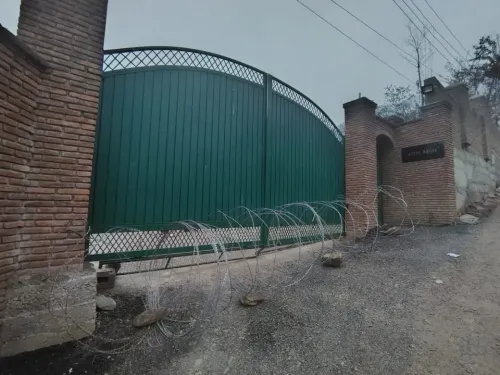Is Climate Change an Existential Threat of Global Proportions?

Synopsis
Key Takeaways
- ICJ ruling highlights climate change as a critical global threat.
- Human activities are the primary cause of greenhouse gas emissions.
- Wealthy nations may face legal accountability for climate damages.
- Africa’s call for reparations and climate finance is reinforced.
- The ICJ's advisory opinions shape international climate law.
New Delhi, July 23 (NationPress) In a landmark ruling on climate issues, the International Court of Justice (ICJ), the main judicial body of the United Nations, declared this Wednesday that scientific findings affirm that climate change represents an existential threat of global scale.
In an address presented in The Hague, President Iwasawa Yuji highlighted that greenhouse gas emissions are “unequivocally” attributable to human activities, acknowledging the “urgent and existential threat” brought about by climate change.
“The impacts of climate change are profound and extensive. They influence both natural ecosystems and human societies. These repercussions emphasize the critical and existential threat posed by climate change,” stated Iwasawa.
The court's 15 judges were presented with two essential inquiries regarding the responsibilities of nations concerning climate change: What obligations do states have under international law to tackle climate change for both current and future generations? Additionally, what legal repercussions exist for states that neglect these responsibilities? The ICJ, the UN's principal judicial body, provided its advisory opinion regarding these state obligations.
In reaction to the ICJ's ruling, Mohamed Adow, Director of the Nairobi-based think tank Power Shift Africa, commented to IANS: “This ruling serves as a major boost for climate justice. The ICJ has affirmed Africa's long-standing demand that wealthy nations should be held responsible for the harm caused by their emissions.
“For a continent such as Africa, which is least responsible yet most adversely affected, this ruling is a lifeline. It fortifies our calls for reparations, debt relief, and genuine climate financing—not loans that exacerbate poverty.
“The time for polluters to hide behind ambiguous promises is over. Africa will not be sacrificed for the excesses of others. The law now supports our ethical stance. It’s high time for affluent nations to settle their climate debts and facilitate a just transition powered by Africa’s renewable energy capabilities.”
The ICJ was established under the United Nations Charter in June 1945 and commenced its operations in April 1946. The court consists of 15 judges elected for a term of nine years by the General Assembly and the Security Council of the United Nations.
The court is headquartered at the Peace Palace in The Hague, Netherlands.










